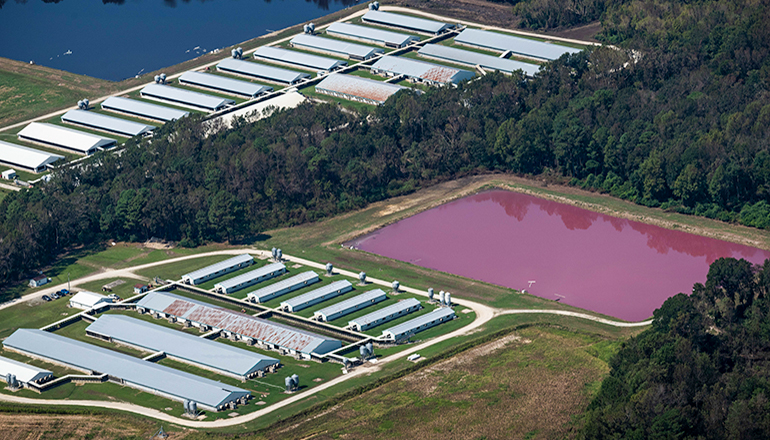Farmers and ranchers are raising red flags about the need for more regulation of concentrated animal feeding operations, known as CAFOs, and highlighting sustainable practices which can be used to produce food and fight climate change.
A U.S. House subcommittee held a hearing Tuesday on regenerative agriculture.
Doug Doughty of Livingston County, an independent farmer and livestock producer, served as a witness. He said Missouri has been rolling back clean air and water protections but thinks they should instead take steps to regulate CAFOs and help them coexist with small and mid-sized family farms. “Things like that would be very helpful, to have a water quality management program that CAFOs have to do before they build,” Doughty recommended. He also urged “stronger nutrient management plans, where they are not applying too much manure and commercial fertilizer.”
Doughty and other witnesses noted CAFOs also contribute to harmful emissions which, in turn, fuel extreme weather events, disrupting the growing and delivery of food. Republican committee members argued higher gas prices are a bigger threat to agriculture right now, along with regulations under the Biden administration.
Doughty pointed to no-till technology, crop rotations, field borders, and terraces as key regenerative practices his farm uses to reduce erosion and nutrient runoff. He explained they have also enrolled hundreds of acres of land in a federal program to plant species to improve environmental health in exchange for a payment.
He added climate change is a tangible concern for many farmers. “In the last few years, I’ve noticed more extreme weather events,” Doughty emphasized. “I notice that I’m doing more work repairing terraces because of the 5, 6, 7-inch rains that fill the terraces up, and they overflow. You know, I’m experiencing climate change.”
In his testimony, Doughty urged the U.S. Department of Agriculture to direct more funds to small and mid-sized farms to implement conservation-minded practices, as well as bolster farmers’ markets, urban agriculture programs, and neighborhood kitchen and grocery initiatives.
(Photo by Jo-Anne McArthur on Unsplash)


